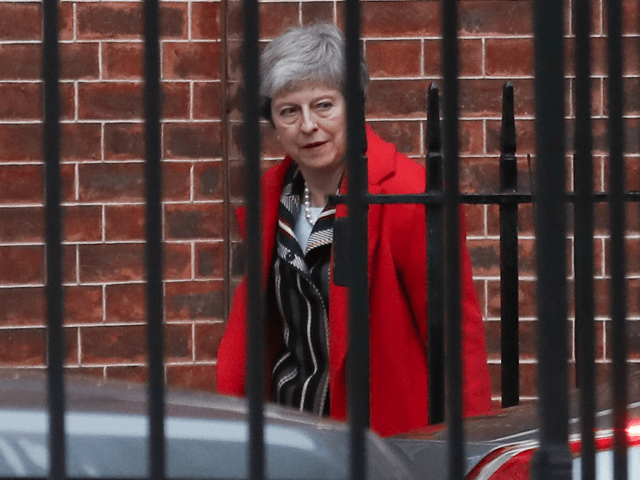A growing number of Tory MPs are demanding the prime minister specify a date for her departure as leader, believing it could soften opposition and increase support for her Brexit deal in Parliament.
Theresa May has repeatedly insisted there is no alternative or way to improve her deal, saying Monday there would be no Brexit without the unpopular “Irish backstop” clause that could keep the UK tied to the bloc’s rules indefinitely and divide the nation with an EU-imposed border in the Irish Sea.
And when questioned last week, she repeatedly refused to say that she would quit if her deal does not succeed in the House of Commons when it is voted on on December 11.
However, the PM faced a grilling in the House of Commons on Monday evening, with pro and anti-Brexit MPs slamming her deal, and more Tories calling for her to go.
Now, Conservative Party sources have told The Times there is mounting pressure on Mrs May to outline a timetable for her departure to encourage support for her deal, which looks increasingly likely to fail in the Commons.
“We know that the future relationship is not binding. This means she is the problem, not the deal per se, since it leaves plenty of flexibility for a successor to organise technical solutions for the Irish border and move towards Canada,” the source told the newspaper.
Pro-Brexit MPs have long called for a simple trade deal with the EU, similar to that struck by Canada, which would allow the UK to break free of EU laws and courts.
Twenty-five of the required 48 Tory MPs have now publicly submitted letters of no confidence in Mrs May — more may have privately — and more than half of the party’s backbenchers say they will vote against her deal in the Commons.
Sir Michael Fallon, a former defence secretary and loyal supporter of Mrs May, joined those attacking her negotiating style and deal Monday.
He described the deal as a “huge gamble,” adding: “Paying, leaving, surrendering our vote and our veto without any firm commitment to frictionless trade or the absolute right to dismantle external tariffs.
“Is it really wise to trust the future of our economy to a pledge simply to use best endeavours?”

COMMENTS
Please let us know if you're having issues with commenting.